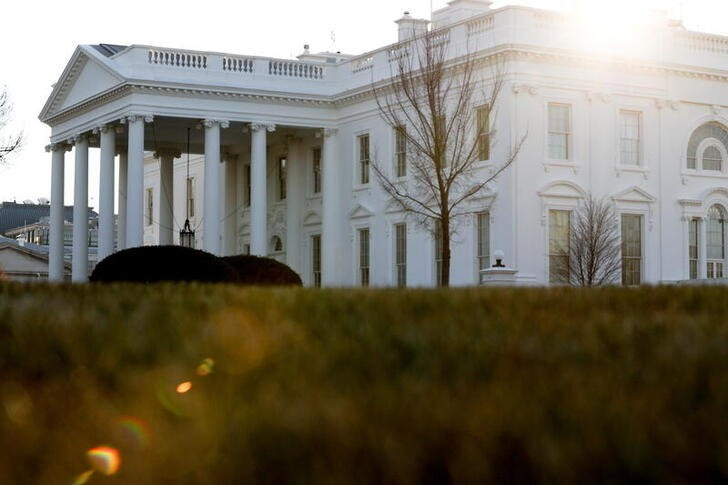By Clark Mindock and Timothy Gardner
(Reuters) - The White House on Friday proposed reforms to the environmental review process for new energy projects that it said would help speed up permitting for electric transmission and other projects needed to curb emissions linked to climate change.
The proposal would revise National Environmental Policy Act (NEPA) implementing regulations by encouraging more "programmatic" environmental reviews of multiple projects rather than individual reviews, and by allowing federal agencies to exclude more project categories from review.
It would also limit the need for environmental reviews for projects that federal agencies deem to have significant and long-lasting positive impacts.
The new rule was proposed by the Council on Environmental Quality, a White House division that said the changes to the NEPA review process would accelerate the adoption of clean energy in the U.S. while strengthening protections for communities by encouraging earlier public comments on projects.
NEPA is a bedrock environmental law that requires environmental reviews for major projects, and is a frequent focus of litigation that can delay projects for years.
The White House said the proposed rule "would fully implement and build upon new permitting efficiencies" directed by Congress in this year's debt ceiling law.
The rule would build on initial work to reform the NEPA process finalized last year, when the White House reversed a Trump administration overhaul of the process. Last year's changes required federal agencies to consider the “direct,” “indirect,” and “cumulative” impacts of proposed projects or actions, including a full evaluation of climate impacts.
White House climate adviser John Podesta told reporters in a teleconference Thursday that the country needs 60% more transmission by 2030 in order to keep on track to meeting President Joe Biden’s clean energy and infrastructure goals.
The permitting process is currently “plagued by delays,” Podesta said, adding that the reforms would help. But lawmakers still need to pass more thorough reforms, he said.

Republican Senator Kevin Cramer, a member of the Senate Environment and Public Works Committee countered that the changes would only make it easier for environmental activists "to tie up and drag out expensive litigation."
Ben Jealous, the executive director of the Sierra Club, said in a statement the reforms would allow for the build out of clean energy projects “without sacrificing communities or rubber stamping more fossil fuels.”
The proposed rule must now go through a public comment period before the White House can finalize approval.